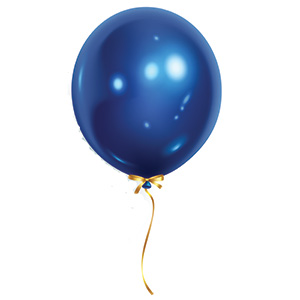The Crabapple Incident
(Another Misadventure of The Broken Boys)
After a long night of sky watching that ended with a pale purple dawn, the boys rolled up their blankets and went looking for drinking water. This was late summer, when all the nearby streams dried up. Provisions were seriously low, so it was time to scavenge. On the horizon a cluster of low dark clouds lightened by the minute.
Some hours later, when the sun was high and intensely bright, the boys hiked through a stretch of prickly bushes and thorny thickets that led onto a clumpy field. No sign of water but the field was fringed by crabapple trees, and at this time of year there were more crabapples on the ground than on the branches.
The boys, thirsty and tired, plunked themselves down among the weeds and wildflowers and began to eat. They had a feast, conducting what amounted to a series of mini-picnics, sitting within arm's reach of one another, grabbing crabapples from the ground, examining their ripeness or rottenness, shaking off dirt, flicking ants, before biting into parts then tossing the cores.
When supplies within reach ran out, a boy would join a different group working a nearby area. In this way the boys gradually moved across the field, devouring crabapples until their bellies were filled and a few of the younger boys felt nauseous.
Before moving on, one of the older boys, pretending to be in charge, suggested that everyone load up with as many crabapples as they could carry.
Few of the boys agreed with this plan. When they did get hungry again, a crabapple would not be their first choice. Several groaned and grumbled, finding the idea of carrying crabapples for who knew how long rather unappealing.
A dispute ensued. Crabapples were tossed and fake tossed or held in a threatening manner. The boy who suggested the idea asked for a show of hands. "All those in favor of gathering crabapples..."
But before the vote could be counted one of the taller boys, a scrawny teen, who sometimes acted like he was in charge, shouted "Look. There! Look down." He pointed at the ground, at the shadow of a bird moving this way and that. He jerked his arm to follow the bird's shadow as it slid among the shadows of the boys "I want those wings. Quick. Somebody stomp on them. Move your feet."
"The bird's up there," another boy replied.
Thirty or forty feet above, a red-tailed hawk swooped, gliding on outstretched wings, crisscrossing the sun.
"I don't want the bird," said the boy who regularly desired things out of reach. He stepped forward, reaching out, watching the shadow of his clutching hands move through the bird's silhouette. "I want those wings."
"To get them, we'll have to kill it," said another.
"Fine with me," said the tall boy without hesitation.
For a long moment half the group followed the hawk's flight as the bird coasted in a neat loop above their heads while half the boys watched the bird's silhouette sliding in and around their own shadows.
"It won't be easy," said a chorus of voices.
"When has anything been easy," said the first boy.
Some of the boys loaded apples into the stretched front of their shirts, while others collected stones in the same manner. The boys spread out, some tossing stones and apples at the bird in the air while others aimed at the shadow on the ground. Above them the hawk arched its wings and climbed out of range just as a hailstorm of stones and apples pelted the boys. Some ducked, shielding their heads, others ran for cover beneath nearby trees.
"That was a dumb idea," said a boy.
No one replied to the remark or indicated agreement, possibly from fear of angering the boy and escalating matters, possibly from the sudden cramping felt in their tummies, a result of jumping around with a belly full of mush.
The bossy boy who wanted the bird brought down so that he could possess the shadow of its wings sulked. He stared at the ground, sensing everyone's eyes on him. He braced himself for what was coming. Already he could feel them poking and pinching, punching and kicking, condemning him for where they were, what they were becoming, what as soon as tomorrow they could no longer deny. He felt his muscles stiffening. Not once did he flinch. He bowed his head, shut his eyes and waited. Eventually the sun would drop behind the hills and the shadows would reach out to save him, because no matter how crazy with fury any boy became, when night settled in they turned back into shadows, like everything else.
Bob Thurber is an old, unschooled writer widely published in literary journals, magazines, and on the Internet. This is the fifteenth time his work has appeared in The Cafe Irreal. “The Cat Who Waved,” appeared in Issue #5; “Shuteye” appeared in Issue #15; “The Bartender Story” appeared in Issue #32; “You Don’t Belong Here” appeared in Issue #34; “A Woman on the Bus” appeared in Issue #38; "Crackers" in Issue #40; "Mister Fumble Bumble and The Merry Widow of The Shoemaker" in Issue #43; "Old Sharp Photo" in Issue #45; "The Manufacturing of Sorrow" in Issue #51; "No Sequels, Please" and "The Chief Deacon's Report on the Rumored Return of the Broken Boys" in Issue #56; "Blankets" in Issue #60; "The Calendar Is Nobody's Friend" in Issue #76; and "The Work" in Issue #82. Bob is the author of six books, including Paperboy: A Dysfunctional Novel and his latest story collection, If You'd Like To Make a Call, Please Hang Up. For more information visit www.bobthurber.net.

